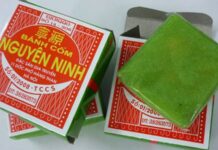The fruit mentioned here is the monk fruit, also known as Momordica grosvenori Swingle, native to southern China’s Guangxi province.
Monk fruit is a climbing vine, and its fruits are used to create refreshing beverages and are a popular source of natural sweeteners. The fruit contains mogrosides, which are incredibly sweet compounds. Specifically, mogroside V is approximately 300 times sweeter than sucrose, while mogroside VI is 126 times sweeter.
In 2010, the US Food and Drug Administration (FDA) approved the use of monk fruit as a sweetener. One of the unique characteristics of mogrosides is that they do not raise blood sugar levels, making monk fruit a safe alternative sweetener for diabetics and those looking to reduce their refined sugar intake.
Research on mice has indicated that monk fruit extract can even lower blood sugar levels. The mice in the study that were given the extract had lower blood sugar levels, lower oxidative stress, and higher levels of HDL (“good”) cholesterol.

Health Benefits of Monk Fruit
- Soothes Throat and Reduces Cough
Monk fruit exhibits anti-inflammatory properties, helping to alleviate upper respiratory tract infections, including sore throat. In traditional medicine, this fruit is believed to have a cooling property that soothes and reduces throat inflammation and aids in loosening phlegm.
Additionally, the vitamins and minerals found in monk fruit contribute to strengthening the immune system, helping the body fight off pathogens.
- Antioxidant Properties
Mogrosides, the sweet compounds in monk fruit, also possess antioxidant qualities. Consuming antioxidants helps neutralize free radicals, protecting the body’s cells and slowing down the aging process, thus preventing various diseases.
- Aids in Blood Sugar Control
Mogrosides provide a sweet taste without the calories and blood sugar spike associated with regular sugar. Some studies suggest that mogrosides may stimulate the pancreas to produce insulin, an essential hormone for regulating blood sugar. Additionally, mogrosides have been shown to improve insulin sensitivity, helping cells respond better to insulin.
As a result, monk fruit is an excellent natural sweetener alternative for those looking to reduce their sugar intake.
- Promotes Digestive Health
The fiber content in monk fruit can stimulate intestinal motility, supporting healthy digestion and preventing constipation. Monk fruit is also considered a mild laxative in traditional medicine and is suitable for those with sensitive digestion as it is non-acidic and non-irritating to the stomach.
Furthermore, the compounds in monk fruit provide nourishment for the beneficial bacteria in the gut, contributing to a healthy gut microbiome and improving overall digestive function.

- Detoxification and Heat Relief
In traditional medicine, monk fruit is believed to have a sweet taste, a cool nature, and no toxicity. It is often used in herbal remedies and to prepare cooling drinks. Modern scientific research supports the fruit’s efficacy in enhancing liver function and its detoxifying capabilities.
However, monk fruit is typically consumed in its dried or powdered form rather than fresh.
Precautions When Using Monk Fruit
While monk fruit is much sweeter than sugar and does not raise blood sugar levels, it is important not to overeat. A typical daily intake is around 9-15 grams, which can be brewed or infused into drinks. Diabetics should still consult their doctors before incorporating monk fruit as a sugar substitute in their diets.






























